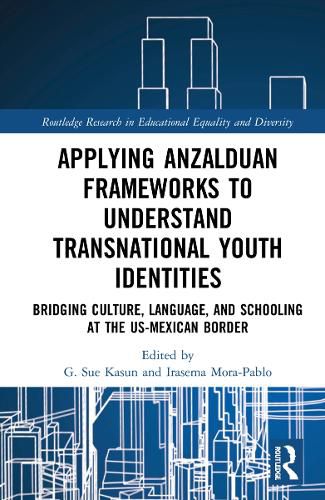Readings Newsletter
Become a Readings Member to make your shopping experience even easier.
Sign in or sign up for free!
You’re not far away from qualifying for FREE standard shipping within Australia
You’ve qualified for FREE standard shipping within Australia
The cart is loading…






Framed by the theoretical work of Gloria Anzaldua, this volume focuses on the cultural and linguistic practices of Mexican-origin youth at the U.S. border to explore how young people engage in acts of bridging to develop rich, transnational identities.
Using a wealth of empirical data gathered through interviews and observations, and featuring perspectives from multinational and transnational authors, this text highlights how youth resist racialized and raciolinguistic oppression in both formal and informal contexts by purposefully engaging with their heritage culture and language. In doing so, they defy deficit narratives and negotiate identities in the in-between. As a whole, the volume engages issues of identity, language, and education, and offers a uniquely asset-based perspective on the complexities of transnational youth identity, demonstrating its value in educational and academic spaces in particular.
This text will benefit researchers, academics, and educators with an interest in the sociology of education, multicultural education, and youth culture more broadly. Those interested in language and identity studies, as well as adolescence, schooling, and bilingualism, will also benefit from this volume.
$9.00 standard shipping within Australia
FREE standard shipping within Australia for orders over $100.00
Express & International shipping calculated at checkout
Framed by the theoretical work of Gloria Anzaldua, this volume focuses on the cultural and linguistic practices of Mexican-origin youth at the U.S. border to explore how young people engage in acts of bridging to develop rich, transnational identities.
Using a wealth of empirical data gathered through interviews and observations, and featuring perspectives from multinational and transnational authors, this text highlights how youth resist racialized and raciolinguistic oppression in both formal and informal contexts by purposefully engaging with their heritage culture and language. In doing so, they defy deficit narratives and negotiate identities in the in-between. As a whole, the volume engages issues of identity, language, and education, and offers a uniquely asset-based perspective on the complexities of transnational youth identity, demonstrating its value in educational and academic spaces in particular.
This text will benefit researchers, academics, and educators with an interest in the sociology of education, multicultural education, and youth culture more broadly. Those interested in language and identity studies, as well as adolescence, schooling, and bilingualism, will also benefit from this volume.